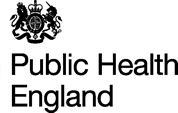An exciting collaborative research project between the UK Health Security Agency (UKHSA) and the Department of Global Health and Infection at the University of Sussex, UK.
Non-tuberculosis mycobacterial (NTM) infections are resistant to many antimicrobials, are difficult to treat and are on the rise in the UK and across the globe. NTM have traditionally been associated with conditions of host impaired immunity meaning that hospitals and other healthcare facilities are high-risk environments. Nosocomial cases have become increasingly prevalent yet, an increased incidence of NTM infections in the otherwise healthy population has also been observed, highlighting an increasing public health concern.
NTM disease most often affects the lungs and the inhalation of particles small enough to enter the alveoli is a likely route of transmission. Numerous case reports of NTM pulmonary disease have implicated water as the source of infection. The aerosolization of NTM (e.g. through showerheads) may represent a significant risk factor for onward transmission. However, given the hypothesis that aerosols are a primary route of exposure, little is known about how exposure correlates with risk of infection.
In high-resource countries, disinfection of the public water supply has played a major role in reducing the incidence of waterborne disease. However, NTM are relatively resistant to chlorine and other water treatment strategies and their ability to attach to environmental surfaces exacerbates their tolerance to disinfection. This selective advantage allows NTM to survive, persist and colonise building water systems highlighting an urgent need to understand which water treatment strategies are effective in minimising risk of infection.
This project will bring together microbiology, biofilm-modelling, aerobiology, and bacterial transcriptomics to identify environmental factors that influence the presence of NTM in building water systems and to better understand how the adaptations of NTM drive their survival, transmission and control.
Supervisory Team
This project is a collaboration between the Biosafety, Air and Water Microbiology Group and the Drug Discovery Group, at UKHSA, and the Waddell lab (www.bsms.ac.uk/dr-simon-waddell) at Brighton and Sussex Medical School (BSMS).
The supervisory team brings together a range of complementary skills to benefit the project. At UKHSA, there is substantial expertise in environmental microbiology and utilising model systems and simulated real-world settings to assess contamination and control of waterborne pathogens (Dr Ginny Moore; primary supervisor/main contact), culturing mycobacteria as biofilms to model NTM biofilm formation within the environment (Dr Joanna Bacon) and carrying out specialist aerobiology experimental studies to inform microbial exposure risks from aerosols (Dr Simon Clark). At BSMS, Prof Simon Waddell specialises in using whole genome technologies to understand mycobacterial pathogenicity specifically, in terms of this project, to determine transcriptional adaptations of NTM species sampled from biofilms and from aerosols.
The successful candidate will have the opportunity to work at both institutes. They will be based at UKHSA Porton Down where they will be part of the Biosafety, Air and Water Microbiology Group. The student will be registered for their PhD in the Department of Global Health and Infection at BSMS; a department with a vibrant research programme and academic links around the world (www.bsms.ac.uk/research/global-health-and-infection/index.aspx). The student will benefit from support, training, and research opportunities at both institutions.
Funding
The project is funded by the UK Health Security Agency (UKHSA), an executive agency of the UK Department of Health and Social Care. These funds cover the tuition fees and provide an annual stipend for three years (currently at £18,062 for 2022-2023).
How to Apply
Applicants should have a minimum of a 2:1 undergraduate degree and desirably hold or expect to achieve excellent grades in a Master's degree in a relevant subject. The ideal candidate will have practical microbiology experience and some understanding of water systems and biofilms. They should be self-motivated and have good communication skills with an interest in applied scientific research.
The studentship is expected to start on 1st October 2022. To make informal enquiries, please email Dr Ginny Moore ([Email Address Removed]).
To apply, please email Dr Ginny Moore ([Email Address Removed]). Please attach a CV, covering letter explaining your interest in the project and the names and email addresses of two academic referees to your application.

 Continue with Facebook
Continue with Facebook



